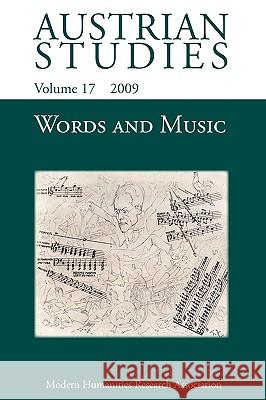Words and Music » książka
Words and Music
ISBN-13: 9781907322082 / Angielski / Miękka / 2010 / 234 str.
The chronological range covered by the individual essays is more than two hundred years, from the Classical Enlightenment to the early twenty-first century. Some of the studies encompassed by this volume undertake the analysis of one composer's settings of a particular poet's work - albeit with rather more critical rigour. Others trace the ways in which a literary text is modified and adapted before and as it develops as one of the principal components of an opera. Several share new insights into the complex relationships of individual works with the literary and musical traditions out of which they emerge (or which they transform and renew) - or set such works in the political contexts of their genesis or reception, often using a key historical moment, a turning-point or a 'snapshot', as the starting-point for a wide-ranging investigation. In some cases the words and the music are those of the same 'composer', the relationship here shedding light on the process of composition itself. Literary works are often scrutinized for the light they shed on a musician's creative processes, but the importance of music to writers - as audiences, but also as amateur or even semi-professional practitioners - is no less important as an investigative standpoint.
The chronological range covered by the individual essays is more than two hundred years, from the Classical Enlightenment to the early twenty-first century.Some of the studies encompassed by this volume undertake the analysis of one composers settings of a particular poets work - albeit with rather more critical rigour. Others trace the ways in which a literary text is modified and adapted before and as it develops as one of the principal components of an opera. Several share new insights into the complex relationships of individual works with the literary and musical traditions out of which they emerge (or which they transform and renew) - or set such works in the political contexts of their genesis or reception, often using a key historical moment, a turning-point or a snapshot, as the starting-point for a wide-ranging investigation. In some cases the words and the music are those of the same composer, the relationship here shedding light on the process of composition itself. Literary works are often scrutinized for the light they shed on a musicians creative processes, but the importance of music to writers - as audiences, but also as amateur or even semi-professional practitioners - is no less important as an investigative standpoint.











